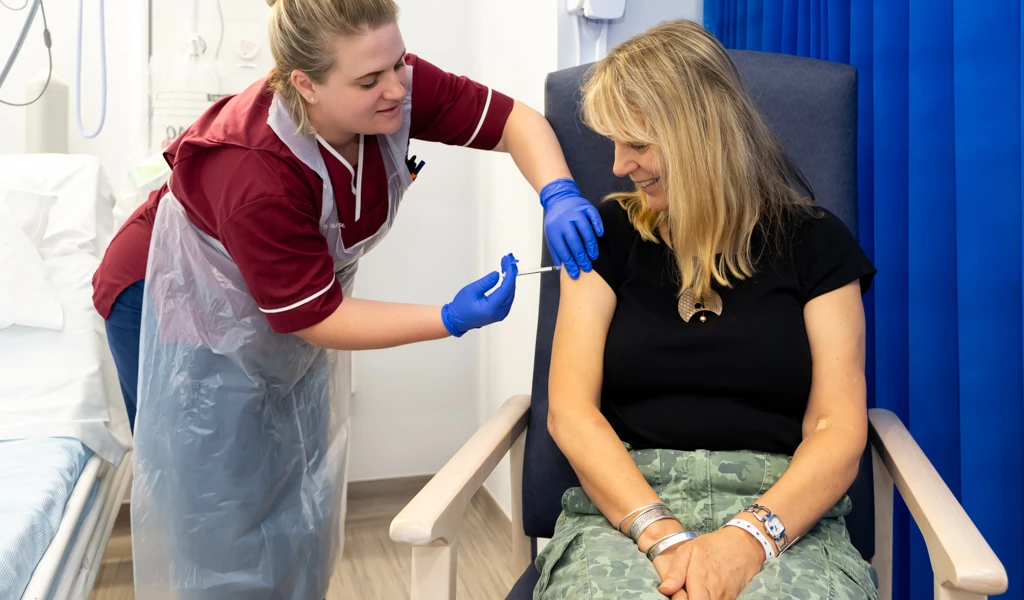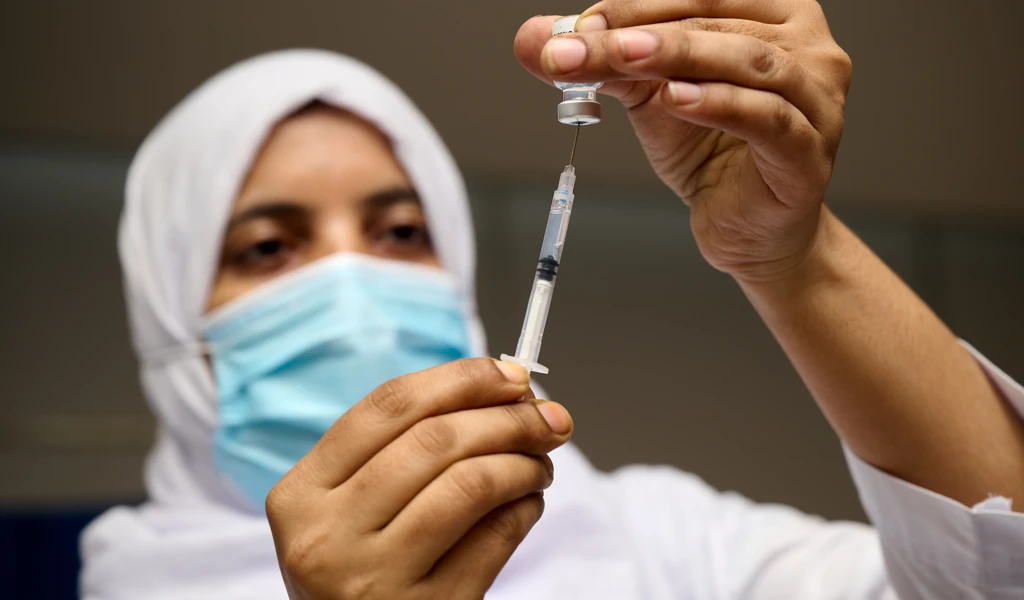CEPI opens Call to develop heat-stable vaccine tech for use against epidemic and pandemic threats

Up to $17.5 million will be made available to vaccine developers and tech companies working on innovations to support temperature-stable vaccines for use in low- and middle-income countries
The aim is to use these new tools to improve global access to vaccines through reducing complex-cold chain requirements and potential vaccine wastage.
CEPI's Acting Director of Vaccine Manufacturing and Supply Chain, Ingrid Kromann: "We're really looking to see a step change in the way that some of these vaccines can be stored and delivered."
3 February 2022, Oslo, Norway — The Coalition for Epidemic Preparedness Innovations, CEPI, has launched a new Call for Proposals to improve the thermostability of vaccines against known epidemic and pandemic diseases—like Ebola, Lassa fever, MERS, as well as COVID-19—or a novel Disease X. The aim of the Call is to minimise the need for complex cold-chain requirements in order to improve global access to vaccines and, in turn, reduce potential vaccine wastage.
CEPI is particularly interested in hearing from vaccine developers and tech companies with new or existing innovations that could support the development of one or more infectious disease vaccines that are both heat-stable and freeze-stable. Example innovations that CEPI may look to fund include temperature-stable vaccine nasal sprays, microarray patches, or orally administered vaccines.
Technologies must be applicable to current or future vaccines and accessible to low- and middle-income countries, and the innovation should not affect other key vaccine criteria such as costs, capacity, and ease of use.
Up to $17.5 million will be made available to support the innovations, with the aim to fund 3 to 5 projects in 2022. This work is part of CEPI's goal, as part of its $3.5bn pandemic preparedness plan, launched in March 2021, to harness innovative technologies to improve the speed, scale and access of vaccine development and manufacturing in response to epidemics and pandemics. The Call may be extended to include other innovation areas that contribute to this goal.
Interested groups could either apply individually or, for example if an independent tech institution, pair together with a vaccine manufacturer and apply as a consortium.
The need for thermostable vaccines
Vaccines are biological products which can lose their effectiveness when exposed to temperatures that are either too hot or too cold. Therefore, cold-chains—involving fridges, freezers, cool boxes for shipping, and other equipment—are used to enable vaccines to be kept at a particular temperature during shipment, storage, and delivery.
While advantageous for maintaining vaccine potency, such temperature requirements can make vaccines inaccessible to remote areas or low-resource settings lacking the infrastructure and technologies needed to store and distribute these vaccines at certain temperatures. This is true for the rollout of some of the currently approved COVID-19 vaccines, including Pfizer/BioNTech and Moderna mRNA-based COVID-19 vaccine technologies requiring ultra-cold temperatures of -20 °C to -80 °C.
Cold chain requirements are also one of the key reasons for vaccines being wasted globally, as vaccines end up discarded after they have potentially been exposed to heat or freezing.
The ability for vaccines to withstand heat exposure has therefore been identified as the most desired characteristic for vaccines used in outreach and campaign settings by experienced immunisation staff. Thermostable vaccines are also identified as a preferred vaccine characteristic by the World Health Organization (WHO).
In as little as two years, science has revolutionised the way we are responding to this dreadful virus, through the development of numerous safe and effective COVID-19 vaccines. Yet, while many high-income nations have easy access to these life-saving tools, low-resource and remote settings are limited by complex cold-chain requirements, contributing to the global vaccine inequity we see today.
We must now use this time to innovate. In support of CEPI's equitable access mission, we're really looking to see a step change in the way that some of these vaccines can be stored and delivered – to provide hope and protection to communities worldwide, while also minimising potential wastage.
We encourage vaccine manufacturers and scientific institutions, including technology companies with creative and forward-thinking ideas around vaccine thermostability, to apply to this Call so that we, together, can make a difference in current as well as future global vaccination campaigns.
Call details
The Call seeks to enable vaccine platforms that currently require freezing, like the RNA vaccine platforms being used in the COVID-19 response, to instead work at the already established cold chain (requiring refrigeration at 2-8°C). CEPI will also support innovations that aim to improve thermostability for any vaccine type to a preferred target of 40°C that allows the last stage of the supply chain to occur without cold chain equipment.
A full list of the epidemic and pandemic pathogens applicants could target is available online.
The new Call is now open for Expressions of Interest up until 31 December 2022. Successful applications may then be invited to submit full proposals for funding.
Further details and information on how to apply are available on the CEPI website.
ENDS
Notes to Editors
The Call may be extended or amended depending on programmatic need. Several related Calls for Proposals are currently open or will soon be published. CEPI may also redirect applications to other open Calls that are deemed more appropriate for their project.
Applicants must be willing to commit to CEPI's Equitable Access principles to enable global equitable access to their vaccine innovation, meaning providing such innovation to those who need it most at an affordable price.
About CEPI
CEPI is an innovative partnership between public, private, philanthropic, and civil organisations, launched at Davos in 2017, to develop vaccines against future epidemics. Prior to COVID-19 CEPI's work focussed on developing vaccines against Ebola virus, Lassa virus, Middle East Respiratory Syndrome coronavirus, Nipah virus, Rift Valley Fever virus and Chikungunya virus—it has over 20 vaccine candidates against these pathogens in development. CEPI has also invested in new platform technologies for rapid vaccine development against unknown pathogens (Disease X).
During the current pandemic, CEPI initiated multiple programmes to develop vaccines against SARS-CoV-2 and its variants with a focus on speed, scale and access. These programmes leverage the rapid response platforms developed by CEPI's partners prior to the emergence of COVID-19 as well as new collaborations. The aim is to advance clinical development of a diverse portfolio of safe and effective COVID-19 candidates and to enable fair allocation to these vaccines worldwide through COVAX.
CEPI's 5-year plan lays out a $3.5 billion roadmap to compress vaccine development timelines to 100 days, develop a universal vaccine against COVID-19 and other Betacoronaviruses, and create a "library" of vaccine candidates for use against known and unknown pathogens. The plan is available at www.endpandemics.cepi.net.
Follow our news page for the latest updates. Follow us via @CEPIvaccines, @DrRHatchett, and LinkedIn.


